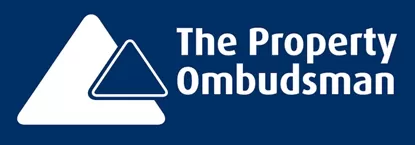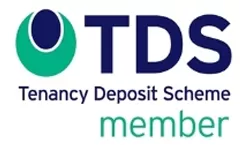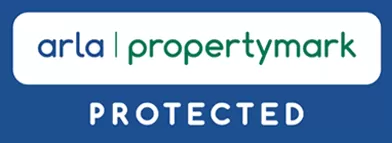At Homes4Let, We Offer a Personal Touch
At Homes4Let, we pride ourselves on offering a personal and flexible approach to property management. We understand that, for many, a rental investment was once their home. That’s why we work diligently to find tenants who will care for your property as much as you did.
We know that becoming a landlord can be stressful. Whether you're new to property letting or an experienced landlord, navigating legal responsibilities can be overwhelming. Legislation changes frequently, but as an ARLA/Propertymark agent, we stay updated and handle the complexities on your behalf. With us, you can feel confident that your property is in safe hands.
We believe that successful property management relies on three key components: the right tenant, the right landlord, and the right agent. Each part supports the other, creating a strong and balanced relationship—just like the triangle, which is known as the strongest shape.
If you own or plan to invest in residential property, our professional and cost-effective management services can help you achieve optimal performance. We specialize in ensuring smooth tenancies, legal compliance, and maximizing your return on investment.
To assist you in preparing your property for letting, we've compiled a pre-tenancy checklist to ensure all essential requirements are met:
Insurance: Update your insurance policy to reflect that your property is being let.
Mortgage Permission: Obtain permission from your mortgage lender to let your property.
Tax Implications: Consult with your accountant regarding potential tax obligations.
HMO Notification: Inform your local council's Environmental Health Department if you plan to let the property as a House in Multiple Occupation (HMO).
Selective Licensing: Check with your local council to determine if your property falls under selective licensing.
Fire Safety Compliance: Ensure all furniture and furnishings meet current fire safety regulations.
Gas Safety: Have all gas appliances and equipment serviced by a Gas Safe-registered engineer and keep safety records secure. We can assist in arranging a qualified engineer for you.
Electrical Safety: Ensure all electrical wiring is inspected by a qualified electrician and obtain a valid Electrical Safety Certificate.
By partnering with Homes4Let, you can let your property with confidence, knowing that every detail is handled professionally and with care. Let us take the stress out of property management so you can enjoy the benefits of your investment.
View Landlord Fee ScheduleAn annual Gas Safety check is required and must be provided by a Gas Safe engineer. The inspection ensures that all gas appliances, pipe work and flues that are provided with the property are in safe and working order.
Private rented sector landlords in England with single tenanted properties (e.g. NOT Houses in Multiple Occupation) are required, from October 2015, to:
The Electrical Safety Standards in the Private Rented Sector (England) Regulations 2020 came into force on 1 June 2020 and apply to all tenancies created on or after that date in England from 1 July 2020.
Private landlords must ensure every electrical installation in their residential premises is inspected and tested at intervals of no more than 5 years by a qualified and competent person.
The regulations apply in England to all new specified tenancies from 1 July 2020 and all existing specified tenancies from 1 April 2021. 'New specified tenancies' is any tenancy created on or after 1 June 2020.
Following the inspection and testing, a private landlord must:
Any deposit received must be secured into a tenancy deposit scheme within 30 days.
There are currently three Government approved schemes – The DPS (the only free-to-use scheme), The Dispute Service and MyDeposits.
This is a requirement of the tenancy deposit protection scheme.
Once the deposit is secured, you must provide certain information about the deposit and where it has been secured to tenants either as part of the Tenancy Agreement or on a separate form.
This guide is for tenants and landlords in the private rented sector to help them understand their rights and responsibilities. It provides a checklist and more detailed information on each stage of the process, including:
All furniture a landlord provides must be fire resistant. Furniture must meet the fire resistance requirements in the Furniture and Furnishings (Fire) (Safety) Regulations 1988.
The regulations apply to any of the following upholstered items:
Beds, mattresses and headboards.
Sofa beds, futons and any other convertibles.
Loose and stretch covers for furniture.
Nursery furniture.
Scatter cushions, seat covers and pillows.
The regulations do not apply to:
Sleeping bags or loose covers for mattresses.
Bedclothes - including duvets and pillowcases.
We cannot let any property containing non-compliant furniture. All items must carry a permanent label as proof that items are compliant with the regulations. If you need help, your Reeds Rains consultant will be able to advise you.
Landlords must provide an Energy Performance Certificate (EPC) All private residential property available for let is required to have an Energy Performance Certificate (EPC). An EPC is a legal requirement to all new and prospective tenants during the viewing, or at least before the tenancy agreements are signed.
Legionella is a potentially fatal illness like pneumonia which can be caught by inhaling bacteria generated by hot and cold water heating systems including storage tanks which are not functioning properly or have been stagnant for some time. The Health & Safety at Work Act 1974 and the control of Substances Hazardous to Health 1999 have recently changed and the Control of Legionella bacteria in Water Systems Approved Code of Practice ("ACOP L8"), now applies to domestic living. It is recommended that all landlords of residential rental properties have a Legionella Risk Assessment completed every two years to comply with the law.
Tenants over the age of 45, smokers or heavy drinkers, or those suffering from respiratory or kidney disease or immune system problems, might be considered particularly vulnerable.
We can introduce you to an expert who can assess your property for Legionella and provide you with a report.
Health and safety legislation requires that risk assessments for the Legionella bacteria which cause Legionnaires’ disease are taken. The assessments must identify and assess potential sources of exposure, and steps taken to prevent/control any risk that is identified.
If you own a House in Multiple Occupation (HMO) - a rented property with shared facilities, you may need a licence to let. The mandatory licensing criteria regarding Houses in Multiple Occupation (HMO), which came into effect in all local authorities in England on 01 October 2018, includes the following:
Mandatory Houses in Multiple Occupation Licensing Criteria
Any property occupied by five or more people, forming two or more households, who also share facilities such as the kitchen or bathroom, regardless of the number of storeys is subject to the HMO licensing criteria.
A household is either a single person or members of the same family who live together. A family includes people who are:
Married or living together - including people in same sex relationships.
Relatives or half-relatives, for example: grandparents, aunts, uncles, siblings, step parents and step children
The Right to Rent scheme, which helps to make sure that people renting property in the UK have a legal right to be here, was rolled out across England in February 2016.
This law means that landlords or their letting agents must carry out identity checks on every tenant before they sign a tenancy agreement. If we don't currently handle tenant checks for you, we'd be very happy to discuss how we can help you with this.



Design and Development by Sussex Designs